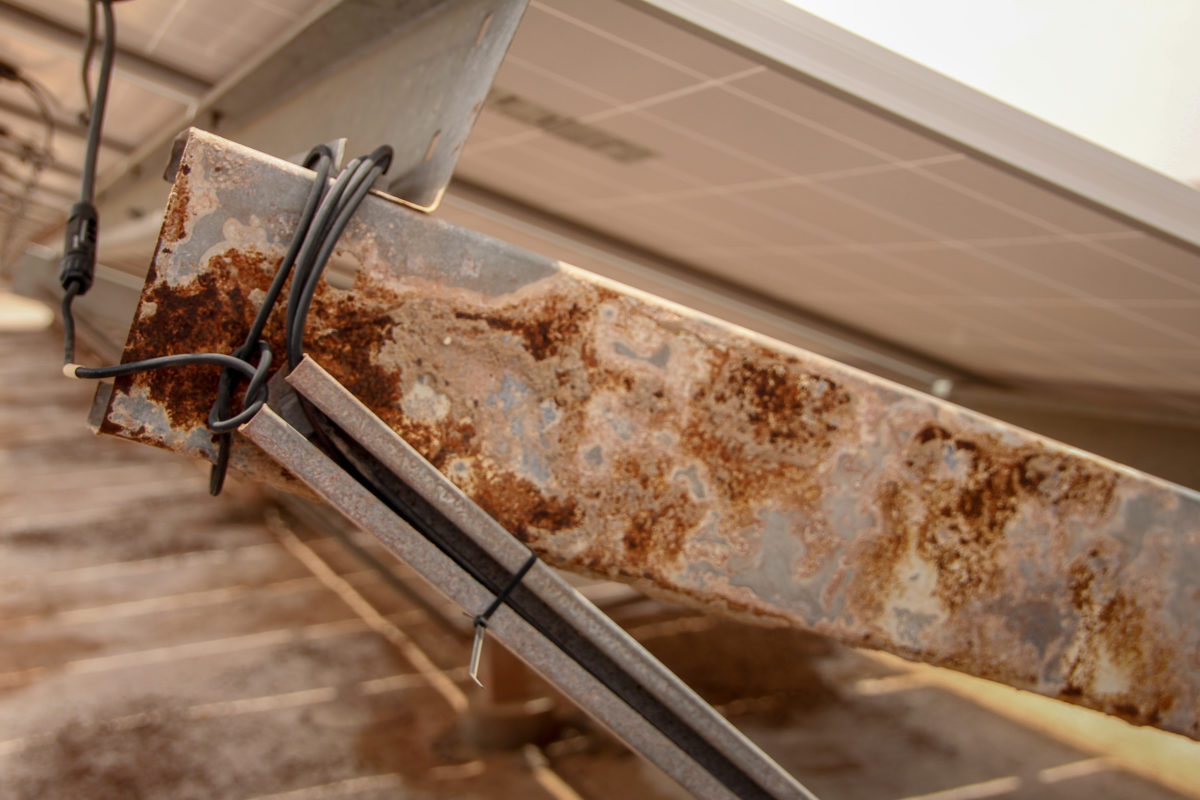India urgently requires a policy on standards for the use of materials in solar module manufacturing and end-of-life waste management, according to consultants Bridge To India (BTI).
“There is an urgent need to formulate appropriate quality standards for [the] use of environmentally sustainable materials in [the] manufacturing of modules,” BTI stated in a report published yesterday. “This will help in minimizing potentially hazardous end-of-life module waste in India.”
The consultancy estimated the volume of solar module waste will rise to 1.8 million tons by 2050. India has neither a policy guideline nor the operational infrastructure required to ensure the recycling of module waste. Recycling facilities for solar panels with antimony-containing glass are not available in the country.
By contrast, BTI pointed out, the European Union has its Eco-Design Directive 2009, a policy instrument to reduce the environmental impact of energy-related products throughout their life cycle.
No economic case
“To make solar a truly green source of energy it is imperative for the industry as a whole to work together, and proactively, towards ensuring a sustainable waste management plan for solar energy systems,” said Vinay Rustagi, managing director of Bridge To India.
Most bidding documents place responsibility for handling and disposing of PV waste on developers, as per India’s E-waste (Management and Handling) Rules 2011, said the consultancy.
According to BTI, solar module recycling is still not commercially attractive. The cost of recycling is estimated at between $250 and $300 (Rs17,300-20,800) per tonne in Europe and the U.S. Depending on the distance, transportation can add 60-100% to that cost. By comparison, the value of recovered materials is estimated to be only around $45-130 per tonne, depending on the recycling technology used for crystalline silicon (c-Si) modules. Various attempts are being made, especially in the EU and U.S. to ensure a higher recovery rate of raw materials in a cost-effective manner, BTI said.
Ministry move
Earlier this month the Ministry of New and Renewable Energy proposed mandating solar developers to follow glass recycling procedures for PV panels.
“Producers may be made responsible for ensuring [the] recycling of end-of-life glass panels as part of their extended responsibility, as in the case of e-waste which covers used lead-acid batteries, packaging material, etc,” the ministry said in a concept note. “The generators might set up facilities for [the] safe dismantling of used solar panels or should tie-up with an authorized dismantling facility.”
This content is protected by copyright and may not be reused. If you want to cooperate with us and would like to reuse some of our content, please contact: editors@pv-magazine.com.








As we develop and grow in volume and dimension of solar power through an aggressive policy that has been promising and rewarding, the need to look into healthy and environmental friendly ways of disposing solar waste gains importance. Every right step in handling solar waste now would help in making the plants of the industry environmentally clean and garbage free. To say that India is poorly positioned to handle solar waste is a misnomer as Solar industry took off only a decade back and generation and handling waste of solar modules is coming up only now.
Every step towards effective handling of waste will usher in a name to the industry as an eternally clean in its functioning besides invisible greenery promoted by it through power generation without emission.